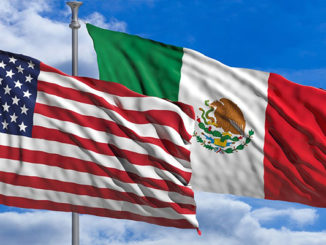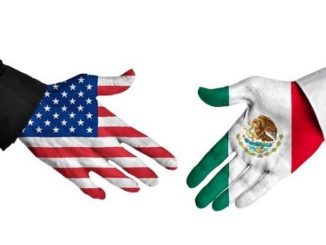
by Antonio Garza
With the United States’ presidential election well behind us, the big focus is now on President-Elect Donald Trump’s cabinet choices.
The transition has proceeded in full view, with a parade of surprising figures and traditional partisans. Names will continue to be announced over the coming days, but will likely take a few more weeks before we have a full picture of who will be filling the major roles.
We are already seeing reactions to the uncertainty across the country and the world. In Latin America, Mexico faces the most immediate effects, as the peso remains vulnerable and the government strategizes over how to respond on everything from a possible 2,000 mile border wall to stepped up deportations. Yet, many more countries across the region could soon be switching gears. Most notably, a dead Trans-Pacific Partnership (TPP) could quickly shake up regional dynamics, with China already showing its eagerness to step in and fill the likely leadership void.
A few weeks ago, I wrote in more detail for the Houston Chronicle about what our political uncertainty could mean for the U.S.-Mexico relationship. After a heated electoral cycle, I cover the past few months’ comments and the ways that the incoming administration could lower the tone, introduce a healthy dose of realism into the policy agenda, and continue to smoothly manage the bilateral relations. Our cross-border relationship is far more complex than any president or policy, but our leadership will set the tone that others will follow.
The United States is the focus of my piece, but that doesn’t mean that other events and issues abroad have disappeared. In Mexico, the government held a tender on December 5th for deep-water oil and gas contracts. The bidding round placed eight out of the ten fields and secured the Australian company BHP Billiton as Pemex’s partner for the deep water Trion field. Its success was a solid boost for Mexico’s energy sector and a sign that big name investors such as Total, ExxonMobil, Statoil, BP, and Chevron still have enough confidence in long-term oil prices to take on high-risk projects.
Yet big oil in Mexico and beyond is still vulnerable to market forces. OPEC’s production cut has pushed the price of oil up again, but the group’s infighting and inevitable cheating, the possibility of U.S. shale producers turning up production, the steady movement of renewables into electricity generation market share, and even a potential Andrés Manual López Obrador (AMLO) presidency in 2018, may all make producers want to prioritize becoming more profitable and nimble in order to ride any future market changes. Moving away from oil production for a moment, natural gas has one of the brightest futures in Mexico. Since mid-2014, the amount of U.S. shale gas piped to Mexican electricity generation plants has doubled and is expected to double again in the coming years. Driving the U.S. export push has been a shift in Mexico toward using natural gas instead of fuels and coal to generate the country’s electricity, combined with the country’s own declining natural gas production.
However, it’s not all good news. Mexican police are still on the hunt for former Veracruz Governor Javier Duarte (from the president’s PRI party), who went into hiding as accusations solidified that some $2 billion in public funds were missing in the state. And Duarte is far from a lone wolf robber, with a handful of other Mexican governors facing and dodging their own corruption charges. Plus, the Enrique Peña Nieto administration also faces grave security challenges that continue to simmer or boil in hotspots from Michoacán to Tamaulipas. Mexico’s homicides in October were up 36 percent when compared to 2015, and so far we have yet to see a comprehensive, coordinated public effort to address the violence.
Antonio Garza is a former U.S. ambassador to Mexico. He is counsel in the Mexico City office of White & Case. Reach him through tonygarza.com. follow him @aogarza, Facebook, and LinkedIn.



